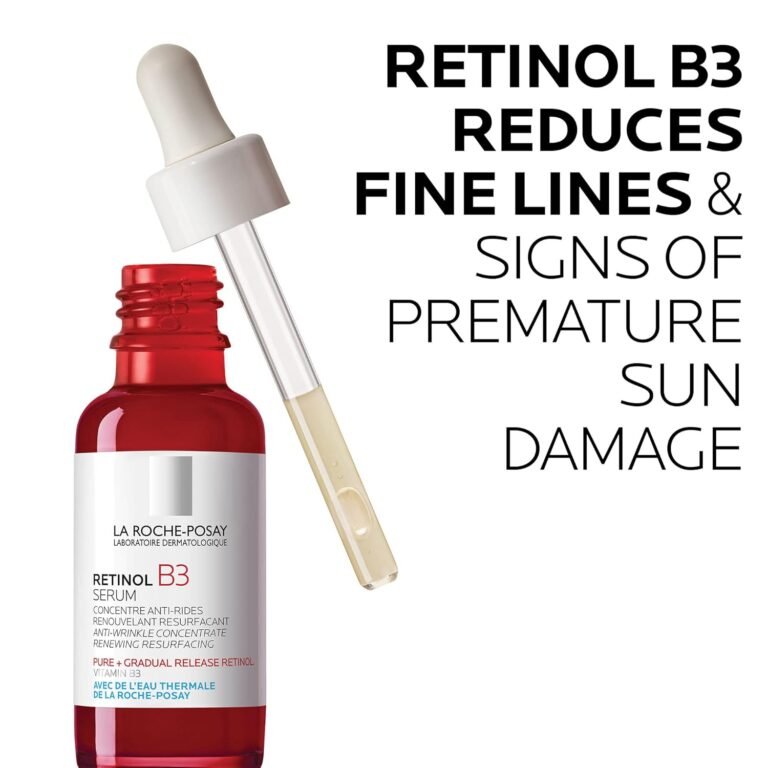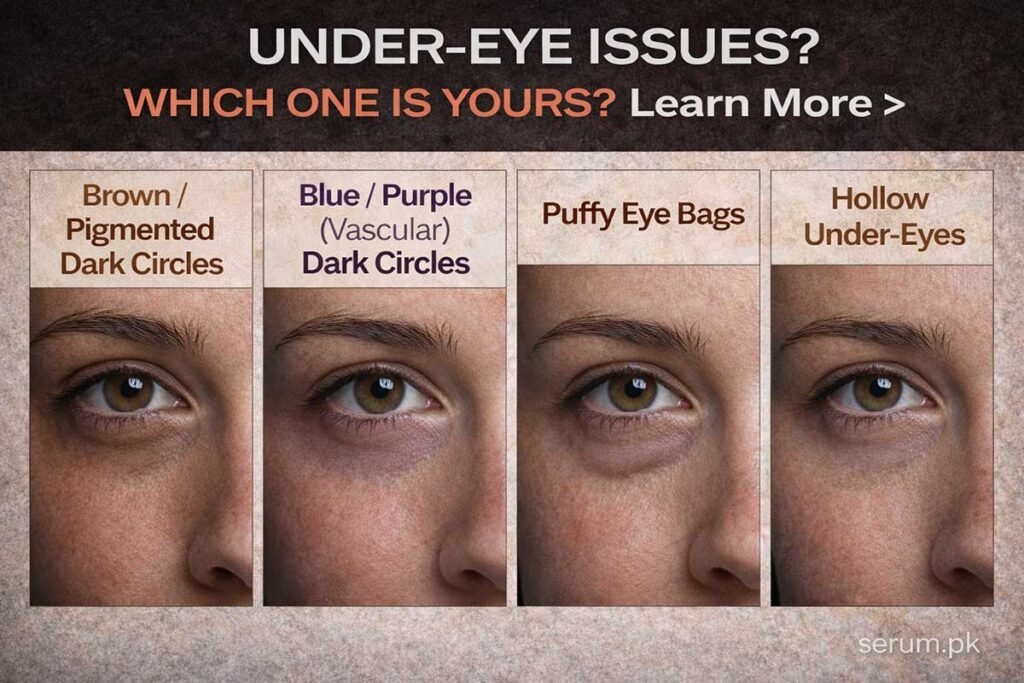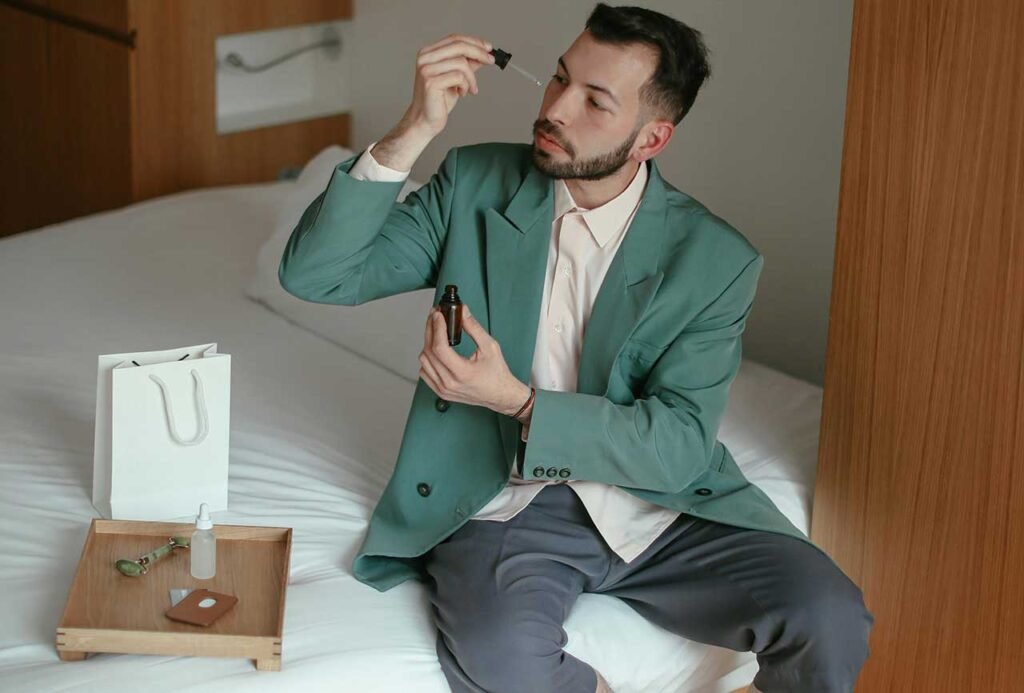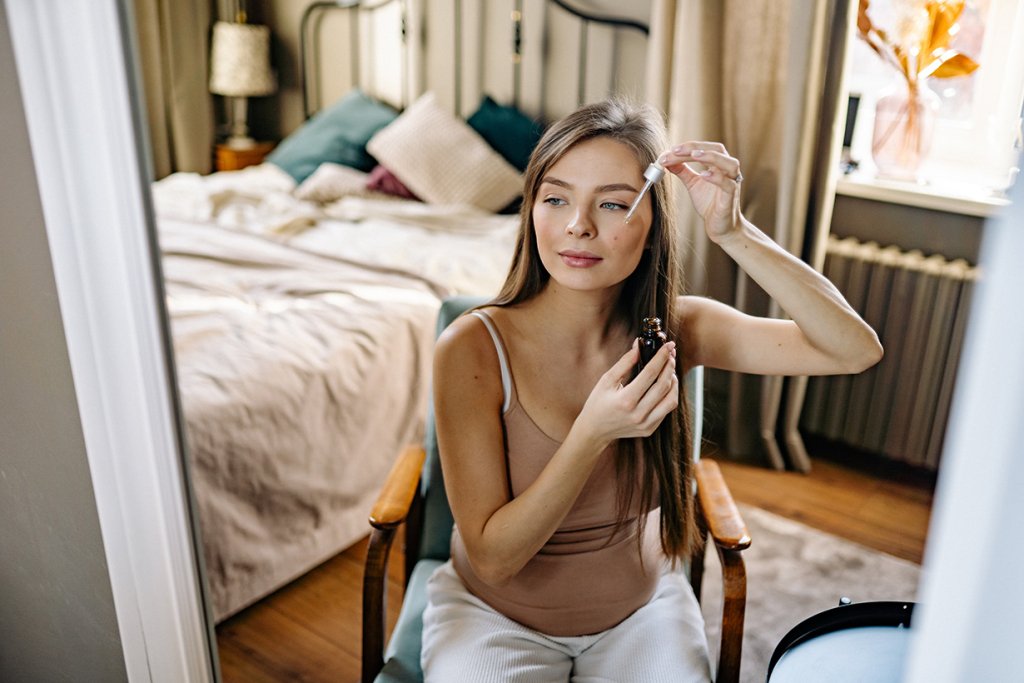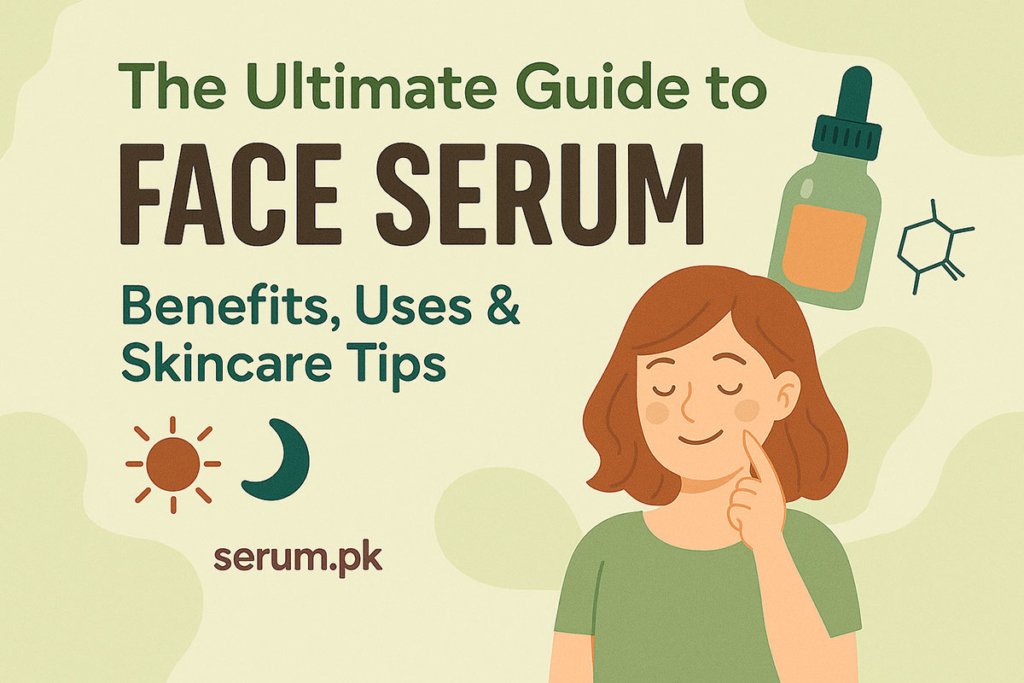What Is Retinol? The Vitamin A Powerhouse for Your Skin

Retinol is like a superstar in the skincare world!
It’s a form of Vitamin A that works wonders for your skin, and it’s now gaining well-deserved popularity in Pakistan. Whether you’re dealing with acne, looking to smooth out fine lines, or wanting to give your skin a little extra glow, retinol has got your back. It’s a favorite not just among dermatologists but also in many over-the-counter products.
But while its benefits are vast, so is the confusion!
What’s the difference between retinol and retinoids? Can everyone use it? And why does it sometimes cause irritation?
This comprehensive guide explains everything you need to know about retinol, particularly for South Asian and Pakistani skin types: what it is, how it works, the scientific evidence, how to use it properly, and who should avoid it.
What Exactly is Retinol?
How Retinol Works on the Skin?
- Cell Turnover Retinol speeds up the natural shedding of old skin cells and encourages the growth of new, healthier ones.
- Collagen Production It stimulates fibroblasts to produce collagen and elastin, proteins that keep your skin firm and smooth.
- Pigment Regulation By reducing melanin clusters, retinol helps even out skin tone and fade hyperpigmentation.
- Sebum Control Retinol normalizes oil production, making it useful for acne-prone skin.
Retinol vs Retinoids: Know the Difference
Ingredient | Strength | Type | Best For |
Retinol | Mild | Over-the-counter | Good for beginners |
Retinaldehyde | Moderate | Over-the-counter | 10x stronger than retinol |
Tretinoin | Strong | Prescription only | Fast results but high irritation |
Adapalene | Moderate | OTC and prescription | Great for Acne |
Retinoic Acid | Strong | Prescription only | Directly active |
Science-Backed Benefits of Retinol
Retinol for Acne
Retinol is great for your skin! It helps to clear out clogged pores, lowers oil production, and stops blackheads and whiteheads from forming. Plus, it can calm down the redness and swelling that comes with breakouts.
A study published by the National Library of Medicine confirmed that topical retinol significantly reduced both inflammatory and non-inflammatory acne lesions.
Retinol for Wrinkles and Fine Lines
As we get older, our bodies naturally produce less collagen. But don’t worry, retinol can help! With regular use, it enhances collagen production, which can really help smooth out fine lines and improve your skin’s elasticity. You’ll love the results!
A double-blind study by JAMA Dermatology found that topical retinol improved fine wrinkles and increased dermal collagen production in elderly participants after 24 weeks.
Retinol for Hyperpigmentation
Retinol works wonders by encouraging your skin to renew itself and slowing down the action of tyrosinase, the enzyme that helps produce melanin. This means it can gently help fade sun spots, melasma, and post-acne marks over time!
A clinical trial published by MDPI showed that using retinol-based products significantly reduced dark spots and improved skin tone after several weeks.
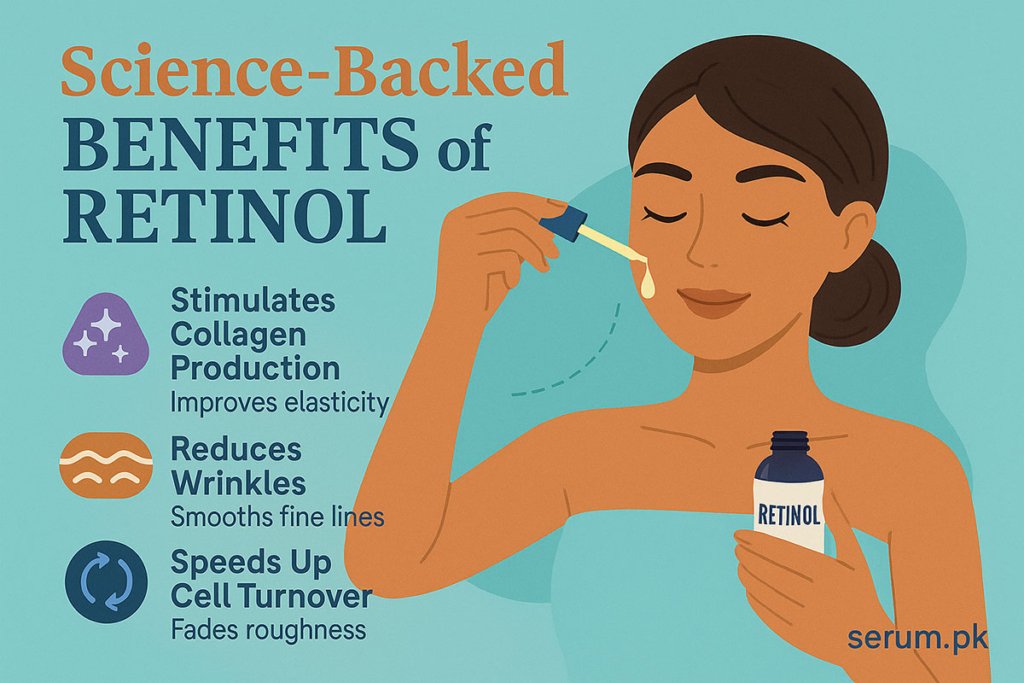
How to Introduce Retinol into Your Routine?
Using retinol the wrong way can cause irritation, dryness, and even breakouts. Follow this guide to minimize side effects, especially if you have sensitive or melanin-rich skin.
Start with a Low Strength (0.25% or 0.3%)
For beginners, especially in hot and humid regions like Karachi or Lahore, it’s better to begin slow.
Frequency: 2x a Week
Use it twice a week at night for the first 2–4 weeks. Increase frequency gradually as tolerated.
Apply on Dry Skin
Retinol penetrates deeper and may irritate damp skin. Wait 20 minutes after washing before applying the product.
Use the “Retinol Sandwich” Method
- Apply a layer of moisturizer
- Then retinol
- Then seal again with moisturizer
This reduces irritation while still delivering results.
Always Follow with SPF 50 (Daily)
Retinol makes your skin more sensitive to UV rays. Even if you’re indoors in cities like Islamabad, you still need sunscreen.
Common Side Effects and How to Manage Them
These reactions are normal and expected in the early weeks of starting retinol, often referred to as the “retinization” phase. Don’t panic, though; these effects usually settle as your skin builds tolerance.
Redness
You may notice your skin looking flushed or pink, especially around the cheeks and nose. This is due to increased cell turnover and mild inflammation; however, it is usually short-lived.
How to Soothe: It can be soothed with calming ingredients like niacinamide or aloe vera.
Peeling or Flaking
Since retinol speeds up exfoliation, your skin may shed dead cells more quickly, leading to peeling or dry flakes. This is especially common in dry cities like Islamabad or during winter months in Lahore.
How to Soothe: Use a ceramide-based moisturizer to protect the skin barrier.
Dryness
Your skin may feel tighter or look dull initially. This happens because retinol temporarily disrupts your moisture barrier.
How to Sooth: Hydrating with hyaluronic acid and sealing with a rich moisturizer can help retain moisture.
Mild Stinging or Burning
Some people feel a light sting when applying retinol, which usually fades within a few minutes.
How to Soothe: If the sensation lasts longer or feels intense, consider buffering your retinol with a moisturizer or reducing application frequency.
Pro Tip
If irritation persists beyond 6 weeks, reduce frequency or switch to gentler alternatives like bakuchiol.
Retinol Myths: Debunked
| Myth | Truth |
| Retinol thins the skin. | No it doesn’t. It actually thickens the dermis by boosting collagen. |
| You cannot use it in the summer. | You can use it year-round with sunscreen. |
| It is not suitable for dark skin tones. | False. It can actually help prevent pigmentation |
| More is better. | High % doesn’t mean better results. Start low. |
| Natural alternatives are the same. | Bakuchiol is gentler but not as clinically proven. |
Best Practices for Pakistani Skin & Climate
Avoid Using with Haldi Masks or Desi DIYs
Many desi remedies contain acids (like lemon or yogurt). Combining these with retinol may cause severe irritation.
Be Extra Careful in Lahore/Islamabad Winters
Retinol + dry air = peeling. Load up on barrier repair moisturizers.
Opt for Non-Comedogenic Moisturizers
Use products that won’t clog pores, especially important for acne-prone Pakistani skin.
No Waxing/Threading Immediately Before or After
Retinol makes skin more sensitive to trauma.
How Long Before You See the Results?
Weeks Used | What to Expect |
0 to 2 weeks | Slight dryness or purging |
3 to 6 weeks | Texture begins improving |
6 to 12 weeks | Fading of pigmentation, fewer breakouts |
12+ weeks | Visible reduction in fine lines, smoother tone |
What to Use with Retinol and What to Avoid?
Safe to Combine
- Niacinamide: Reduces irritation, strengthens barrier
- Hyaluronic Acid: Provides hydration
- Ceramides: Essential for skin resilience
Avoid
- AHAs/BHAs on same night
- Vitamin C (unless well tolerated, use in AM instead)
- Strong exfoliants or peels
Who Should Avoid Retinol?
- Pregnant or breastfeeding women (due to Vitamin A derivatives)
- People with rosacea or eczema (unless cleared by a dermatologist)
- If you’re using oral isotretinoin (Accutane)
Pro Tip
Always do a patch test before full-face application.
Where to Buy Retinol in Pakistan?
If you’re ready to begin your retinol journey, start with products that are authentic, dermatologist-approved, and suitable for Pakistani skin.
At Serum.pk, you’ll find a curated selection of international and local skincare brands, including:
- Gentle beginner-friendly retinol serums for the face
- Eye serums for bright and bag-free eyes
- Affordable bundles for your complete skincare routine
Each product at Serum.pk is handpicked for safety, performance, and accessibility in Pakistan’s climate. Whether you’re a first-timer or a skincare enthusiast, Serum.pk helps you make confident choices.
Few Recommended Products
La Roche Posay B3 Pure Retinol Serum
The Ordinary Retinol Serum
FAQs About Retinol
Can I use Retinol every day?
Eventually, yes. But start 2 times a week and increase slowly to avoid irritation.
Is Retinol safe for Pakistani skin tones?
Yes, in fact, it helps treat pigmentation that’s common in melanin-rich skin.
Does Retinol lighten skin?
No, it doesn’t bleach. It fades dark spots and evens tone, giving the appearance of brighter skin.
Can I use it in my 20s?
Yes! Starting retinol in your mid-to-late 20s is a great way to prevent fine lines and acne.
Final Thoughts
Retinol is one of the few skincare ingredients backed by decades of clinical research, making it a true gold standard in treating acne, fading pigmentation, and reducing signs of aging. For Pakistani skin types, often melanin-rich and prone to uneven tone, retinol can be transformative if used correctly.
So, are you ready to try retinol the right way?
Visit Serum.pk to explore beginner-safe, dermatologist-loved retinol products available across Pakistan, all authentic, affordable, and delivered to your door!
References
- Retinol (Wikipedia)
2. Retinoids: Active Lolecules Influencing Skin Structure Formation in Cosmetic and Dermatological Treatments (PubMed Central)
3. Topical Retinoids in Acne Vulgaris: A Systematic Review (PubMed)
4. Improvement of Naturally Aged Skin With Vitamin A (Retinol) (JAMA Dermatology)
5. The Anti-Acne and Reduction of Hyperpigmentation Effects of Products Containing Retinol (MDPI)
6. Is Your Beauty Routine Making You Photosensitive? (Sun & Skin News)
7. 3 Ways Retinol can Improve your Skin Health (Business Insider)
8. Skin Conditions During Pregnancy (ACOG)
9. Retinol is an Anti-Aging Favorite — But Will It Trigger Your Eczema? (National Eczema Association)
About Mahrukh Kureshi
As a content and copywriter, I focus on creating helpful, trustworthy content that actually answers what people are searching for. I don't just write; I find out people's pain points and then carry out proper research to give them the solutions they're looking for. As for all the skincare-related content is concerned, it is written in collaboration with certified dermatologists and reviewed by skincare professionals, so the information is always on-point. With so much misinformation and uncited details online, I bring you content grounded in facts, not guesswork!
View all posts by Mahrukh Kureshi

